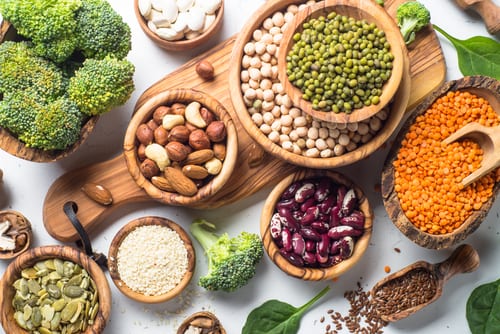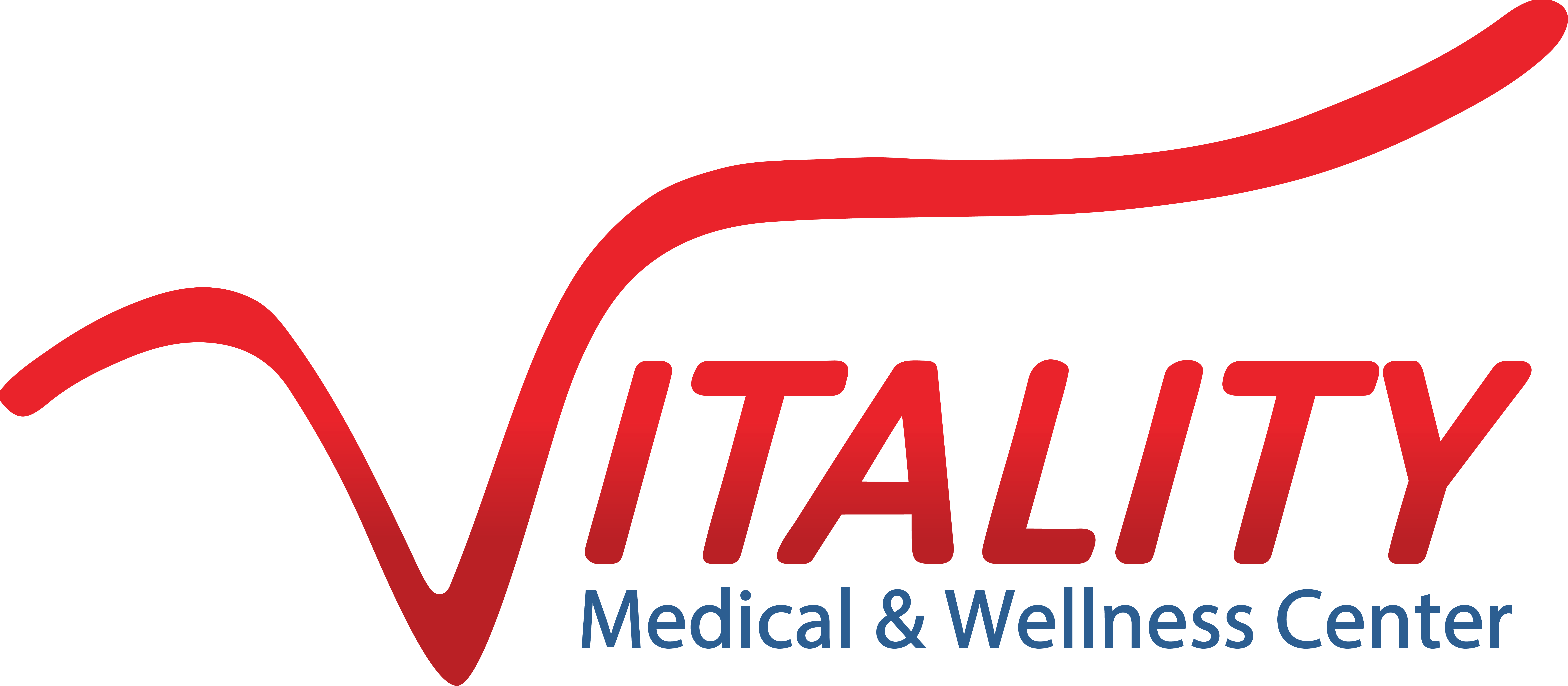September 05, 2019 | 5 minute read
Any time the subject of protein comes up in a conversation with someone who follows a vegan or plant-based diet, they roll their eyes. “How do you get your protein?” is the question most commonly asked of any vegan.
While protein is an essential nutrient that everyone needs, the misconception that protein is the most important part of your diet (and that you need it in vast, dairy or meat-based quantities) is incorrect.
Many vegetables, legumes (beans, peanuts, and lentils), seeds, nuts, whole grains, and other sources provide adequate protein. A successful vegan diet has variety; when you include the items listed above and try new sources of protein mixed with an assortment of vegetables, you build a healthy, well-balanced diet (with plenty of protein).
Risks of Consuming Too Much Protein
- Poor bone health
- Cancer and heart disease
- Liver and kidney damage (disease and stones) from overworking these organs
- Heightened cholesterol
- Weight gain
- Constipation or diarrhea, which can lead to dehydration
- Indigestion, nausea and intestinal discomfort
- Exhaustion
- Seizures
How Much Protein Do We Need?
When people are asked how much protein they need in a day, many do not know the answer. Getting an infinite amount of protein in your diet is not only unnecessary; it can damage your health.
The recommended level of protein can change depending on someone’s age, gender, activity level, and whether or not they are pregnant or breastfeeding. Pregnant and breastfeeding women require drastically higher levels of protein and should discuss their diet with their primary physician.
Typically, the Recommended Dietary Allowance (RDA) of protein for a healthy adult is 0.36 grams per pound of their ideal body weight, which is approximately 56 grams for men and 46 grams for women. About one out of every 10 calories we consume should come from protein. Please consult with our office for ideal macronutrient ratios based on your ideal weight and wellness goals.
When you consider the fact that meat dishes are primarily protein-based, it might be easy to overdo it if you are eating meat with every meal.
How Much Protein Is Too Much?
Although recommendations can vary, it is typically agreed that people should not go above 0.91 grams of protein per pound of ideal body weight.
Diets extremely high in protein are typically only healthy for pregnant women, athletes, or individuals who work a very active, labor-intensive job.
Please always discuss any dietary changes with our office to ensure optimal health for your body.
Vegan Protein Sources
With a vegan diet, you may be questioning whether you are getting enough protein. Healthy, whole foods are great options for taking in enough protein and nutrients every day. Some examples of vegan meals can include:
- Tempeh: This soy-based product can be marinated or stir-fried with veggies and served with rice, quinoa, or beans. It is also scrumptious when served on a sandwich made with whole wheat, whole grain bread.
- Mixed beans: You can make a quick bean salad by cooking a few different types of beans, such as edamame, chickpeas, kidney beans, black beans, etc. and mixing them with your favorite dressing and other fresh vegetables.
- Spinach and tofu scramble: Tofu tends to absorb the flavors of what it is cooked with, so when seasoned well, it can taste quite delightful with vegetables and your favorite sauce. If you desire a cold dish, tofu can be marinated (some packaged tofu is already flavored) and chopped into small cubes and tossed with mayo (vegan, preferably), seasonings, chopped vegetables, and sunflower seeds. This makes an excellent sandwich or lettuce wrap.
- Seitan: This wheat protein is similar to tofu or tempeh but has a different texture, and is great for replacing meat in recipes.
- Lentils: Try substituting meat in your favorite dishes, such as shepherd’s pie or soup, with lentils. Any color of lentil is fine.
- Split peas: Split pea soup is a very comforting dish and is filled with nutrients and protein!
- Vegan alternatives: The market has plenty of meat alternatives to try, including deli slices, sausages, veggie grounds or crumbles, chicken-style strips, and much more.
- Nutritional yeast: Dried flakes of nutritional yeast (sometimes referred to in the vegan community as “nooch”) can be sprinkled onto anything. It provides a toasty, cheesy flavor to whatever you add it to, and delivers protein, vitamin B, and many other nutrients.
- Hempseed: These seeds can be ground up or hulled, and taste great as an extra crunch on salads. Some use them as egg replacements when mixed with water.
- Chia seeds: You can add these to your food for crunch, or they can be soaked in a liquid to form a pudding-like snack.
- Non–dairy milks: Any vegan milk or yogurt contains protein.
- Vegetables: Many vegetables contain small amounts of protein. The highest levels of protein come from peas, broccoli, asparagus, artichokes, potatoes, sweet potatoes, and Brussels sprouts. Try to add these to your daily diet for a protein and nutrient boost.

Beans, nuts, seeds, soy beans, and other options are great plant-based alternative protein sources.
You can search for healthy vegan recipes to get started and find inspiration for healthy, nutritious eating. The Vitality Medical Wellness Center offers vegan protein for meal-replacement smoothies and shakes for when you’re short on time but need a delicious meal. Dr. Cristy Thomas, DNP, FNP-BC, APRN also offers vitamin B shots if you need a boost.
To learn more about the vegan diet, call our office at (702) 731-1200 or fill out our online contact form to schedule an appointment.
